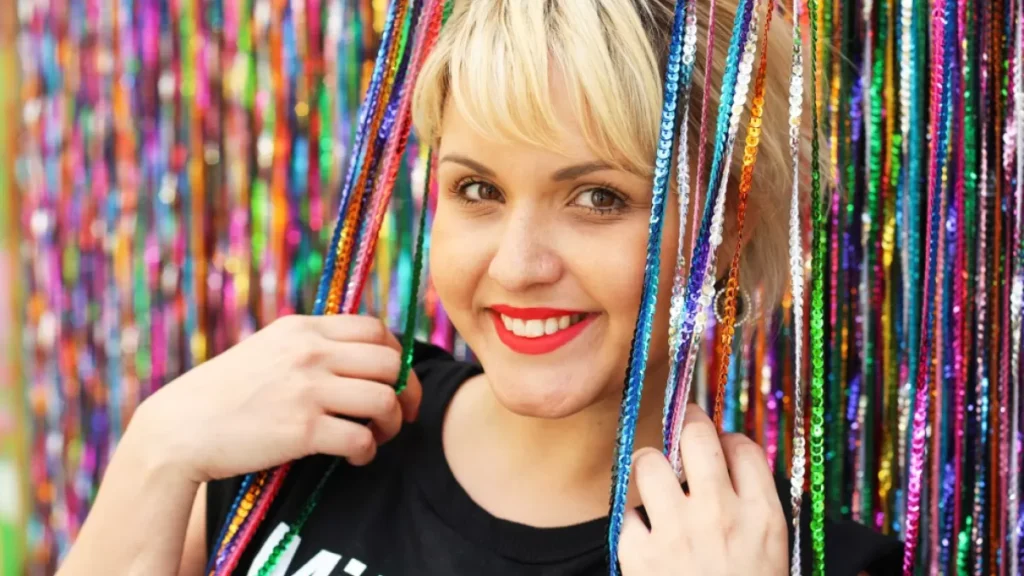How to be happy? That’s one of the existential questions humans have been asking for centuries. In our pursuit of a fulfilling life, we often fall into the trap of believing that happiness is something that will come when we achieve certain goals: being successful, acquiring material goods, or reaching an ambitious goal. However, I challenge this perception and at the same time invite you to change your perspective on it. For me, happiness is not a distant destination, but a daily priority. Happiness is a choice we must make every day, from the moment we wake up. I’ll tell you something: This approach has a deep and, above all, scientific foundation, which I love. Researching this topic, I discovered that, according to recent studies, happiness is not only related to external events or specific achievements. A very interesting publication from Psychology Today reveals that people who practice daily habits of gratitude and optimism are 25% more likely to feel satisfied with their lives than those who don’t. This data reinforces the idea that emotional well-being depends largely on how we manage our emotions and how we face our daily lives, rather than waiting for something external to make us happy. I exemplify this philosophy through my own life.

Don’t postpone your happiness
How so? Well, I don’t postpone my happiness. On the contrary, I’ve learned to make it a priority, and that has completely transformed my way of life. The truth is that one day I decided that I wasn’t going to wait for the perfect moment to be happy, but that I was going to make happiness a constant in my life. And since then, I have not gone back to being the old Vilma who played the victim and put off life, because I understood that I am the fruit of my decisions and actions. That decision has not only allowed me to achieve higher levels of personal satisfaction. Honestly, it’s also helped me balance professional success with a more fulfilling emotional life. So howlly be happy? The answer lies in a conscious process, in learning to embrace our emotions, to value every moment, and, above all, to understand that happiness is not a goal we achieve only when everything is perfect. For me, happiness lies in the journey we take. It’s in the small moments of everyday life where happiness is truly cultivated. From my experience, I’d like to show you that being happy is a decision reflected in every small action we take every day, such as smiling when we wake up or practicing generosity and gratitude. And if you’re wondering, “Vilma, how do I become happy?”, I invite you to keep reading, because I’m going to share some tips that I know will be very helpful.
How to be happy? 4 tips to achieve it
If you keep asking yourself how to be happy, I’m truly excited to share four tips with you to help you achieve it. And you know the best part? Well, these are recommendations I follow myself in my personal and professional life to increase my happiness, gratitude, and abundance.
1. Stop postponing your happiness
Today, I invite you to challenge the common belief that happiness only comes when we reach certain milestones or external conditions. It’s not like that,and I’ve been proving it for years! Happiness is something we must prioritize and cultivate every day, even in the small details of our daily lives. After spending years tied to that limiting belief, I decided to tear it down, and my life took a 180-degree turn. My happiness is my priority, and that’s why every morning I wake up and do my happy breathing ritual: I inhale and then exhale, smiling. You may not believe it, but I’ve discovered that the simple act of inhaling and exhaling with a smile is much more than a symbolic action. It has become a powerful reminder that happiness is accessible in the present, not a peak we might summit in the future. Today, I encourage you to take control of your emotional well-being through daily practices that foster a state of gratitude and complete satisfaction. Instead of waiting for external circumstances to change or align perfectly, I suggest adopting an abundance mindset now. And you know what the best thing about it is? This idea has scientific backing. Recent studies show that people who practice gratitude daily experience higher levels of life satisfaction. This reinforces the notion that happiness is not found in what we have or achieve, but in how we choose to face and enjoy each moment. Therefore, from my point of view, postponing happiness is equivalent to losing valuable opportunities to be happy in the present.
Don’t fall into the trap of delaying your happiness..
I know it’s easy to fall into the “I’ll be happy when…” mindset, get a promotion, earn a certain amount of money, or establish an “ ideal relationship. That’s why I invite you to unlearn this belief and adopt a more present and conscious philosophy. Don’t forget: The key to being happy, day after day, lies in making small daily choices that promote a balanced life. One in which emotional well-being is as important as professional success. Furthermore, I believe that my philosophy connects deeply with the science of gratitude and optimism. It shows us that by focusing on the positive and experiencing the present, we prioritize our long-term well-being. So, instead of seeing happiness as a future reward, how about you encourage yourself to find it in the choices you make every day?
Understand that happiness is not a destination..
I’ll tell you a little story.. One d, ay I realized that happiness is not a destination, it is the path And since then, I have not stopped sharing a deeply valuable perspective: Happiness should not be seen as a reward that is obtained once we achieve certain goals, but as an ongoing experience that we can enjoy at every stage of life. This approach invites us to break down the belief that we can only be happy at the end of a process, and if everything turns out as we expect. Instead, it encourages us to appreciate everyday moments, even those that seem less exciting or “productive.” And here I want to share with you a metaphor that I like a lot and that I always apply in all aspects of my life. Every seed we plant, to which we dedicate time, dedication, and patience, will eventually transform into a leafy tree that will bear fruit.
Being happy is a daily decision Are you making it?
What I’m trying to tell you with that is that success and happiness require patience. Because the day you plant the seed is not the same day you eat the fruit. This perspective invites us to understand that personal and professional growth isn’t immediate, but that every step is necessary and valuable for happiness. If you think about it, that lesson can be applied to all aspects of life: From professional projects to the development of personal relationships or our internal growth. This concept also connects with the principle of mindfulness. This suggests that being present in the present moment and accepting experiences as they are is an essential key to living in well-being. And once again, I’m excited to tell you that numerous studies support this idea. For example, recent research in positive psychology shows that people who manage to enjoy the present, without obsessing over the future or perfection, experience higher levels of satisfaction and well-being. That’s why today I remind you that it’s not just about the “peaks” of success, but about learning to value the ” valley,” those moments of calm or even uncertainty that are part of our life journey. Over time, I’ve come to understand that true wisdom lies in enjoying both challenges and victories, as both are essential to our growth. By adopting this mindset, we can free ourselves from the pressure to achieve a perfect ideal and begin to appreciate the beauty of the path we travel. This teaches us that happiness is not reserved for moments of triumph, but is present in everyday life in every small decision, and in every step we take toward our goals.
2. Recognize your emotions and learn to manage them
We are rational beings, but above all, deeply emotional. That’s the truth, and instead of suppressing what we feel, we must begin to embrace the idea that our emotions have the power to propel us, uplift us, and motivate us to be a better version of ourselves. I believe it, and it’s what I decide to do every day of my life. The result? My emotional intelligence has strengthened over time, and today, I’m able to feel happiness and gratitude, even in my most difficult moments. Therefore, learning to recognize, accept, and manage them is a crucial step toward a more joyful, exciting, and happy life. There’s no doubt about it: Envy, guilt, or anxiety can cloud our ability to enjoy the present and limit us from manifesting a more fulfilling life.
Positive emotions boost your well-being
Positive emotions—such as confidence, pride, gratitude, and empathy—are powerful tools we can consciously cultivate to improve our physical, emotional, and even spiritual well-being. And herea , a great ally comes into play: Trust. I know it doesn’t always feel automatic, so my advice is to work on it every daTodayaya,y I tell you this with great empathy: Trust, even if it doesn’t feel natural at first. Repeat this to yourself in the mirror: “I trust, I believe in myself, I can do it.” Repeating that statement acts as a kind of mental reprogramming.
Therefore, by repeating positive phrases, we are training our minds to focus on what we want to manifest, thus reinforcing self-confidence. And I didn’t invent that. This practice is supported by positive psychology studies that have shown how self-affirmation can have a tangible impact on self-perception and performance.
What emotions make you happy?
I’ve been studying the key emotions that directly affect happiness for years, and here I share them with you:
- Empathy :
For me, this is a transformative emotion, especially in environments where we are more susceptible to judgment. Empathy allows us to connect with people from a deeper place: not from pity or superiority, but from genuine understanding. When we are empathetic, we focus more on how we can help others, rather than getting caught up in our own difficulties. And that, in turn, increases our sense of purpose and emotional satisfaction.
- Pride :
Here I would like to be very clear: It is not about experiencing selfish pride, but rather pride that comes from self-recognition of our achievements, whether large or small. Pride, when healthy, helps us maintain strong self-esteem. This, in turn, strengthens our ability to face challenges with a greater degree of gratitude, acceptance, and resilience.
- Optimism and gratitude :
I’ve also learned that optimism and gratitude are two key emotions for happiness, as they act as an antidote to pessimism and negativity. So instead of focusing on what we lack, we should value what we already have. Gratitude is one of the most beautiful emotions because the more grateful we are, the better we feel. Practicing gratitude daily not only improves our mood but also increases our perception of overall well-being.
3. Your mind is a recorder and repeater
What do you think that means? Well, what we focus on tends to repeat itself.
In this sense, I invite you to train your mind to focus on the positive and the emotions you want to cultivate.
Why? These influence your immediate emotional state and impact your ability to manifest a more fulfilling and happy life.
In my experience, the key to learning to be happy is accepting our emotions and knowing that each one is trying to teach us something, both the positive and the negative.
So it’s not about avoiding or suppressing negative emotions, but rather about recognizing them, managing them, and learning to turn less happy experiences into opportunities for growth and emotional improvement.
4. How to be happy? Reflect on the type of person you want to be
I fully support this wisdom from psychologist Marian Rojas Estapé, whom I deeply admire, to describe the three types of people that exist: Believes that to be truly happy, we must learn to adapt to each of these roles according to the circumstances of our lives. Sometimes we must be observers, reflecting on what is happening around us. Other times, we must act decisively to create the future we desire, and at other times, we must simply accept what life brings us, without trying to change it.
So the questions you should be asking yourself right now are:
- What kind of person are you?
- What kind of person do you want to be?
That way ,you could reflect on yyour rolein building your happiness.
How to be happy? Now it’s your turn!
How to be happy? Honestly, it’s not an insoluble mystery, but a choice we can make every day. I lovingly remind you that happiness is not something we should postpone, nor should we wait for it to arrive at some perfect moment. Instead, we must understand that happiness is an ongoing process. One that is built with our decisions, with the way we manage our emotion s,and with the approach we give to our daily lives. To achieve, enjoy, and sustain it, we must learn to accept both positive and negative emotions, allowing our experiences to guide us toward greater well-being. Remember that being happy doesn’t depend on external circumstances, but on how you choose to face them. The lessons I’ve shared with you in this article—about trust, gratitude, empathy, and pride—show us that cultivating these emotions brings us closer to a more fulfilling life. Every small step, every conscious breath, and every moment of gratitude you integrate into your routine can be the bridge to sustained happiness.


